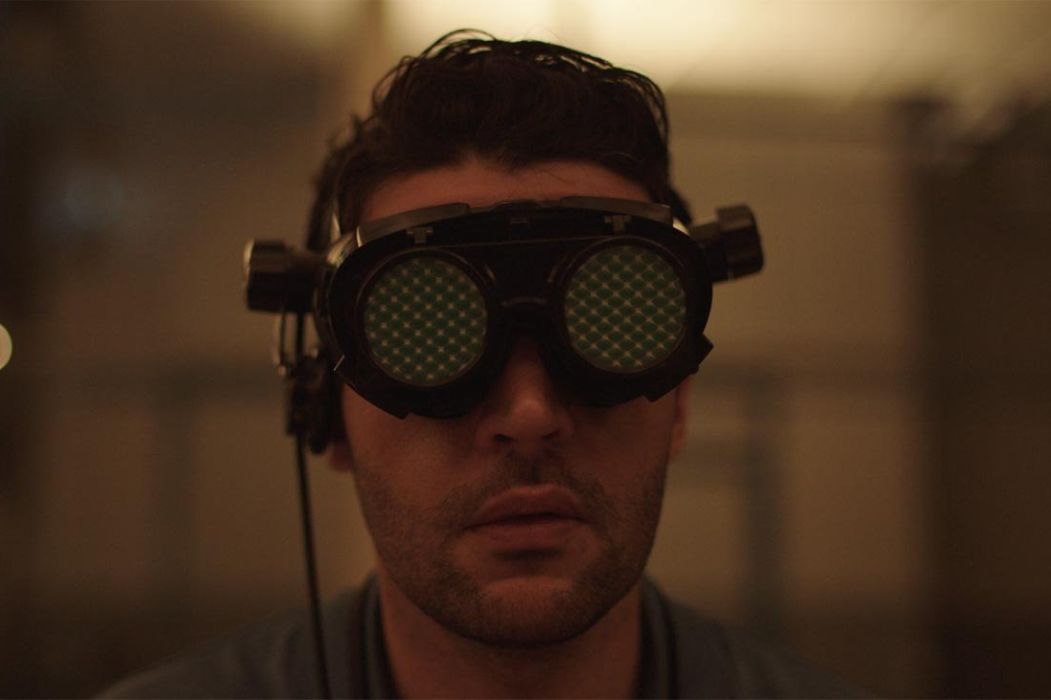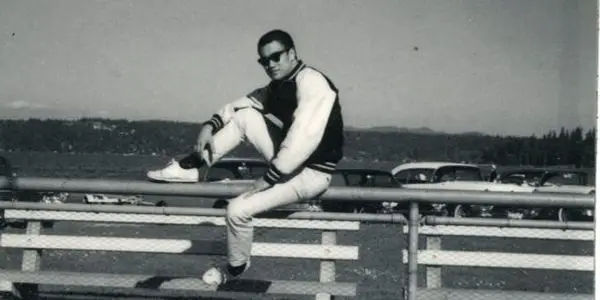Sundance Film Festival 2020: POSSESSOR & BE WATER

Wilson is a cinema enthusiast based out of Toronto, Canada.…
This year’s edition of the Sundance Film Festival has been memorable for so many different reasons, and as expected, almost all of those reasons have to do with the festival’s strong lineup of films. I’ll be ending off Film Inquiry’s coverage of Sundance by reviewing a feature by a Canadian filmmaker (Brandon Cronenberg‘s Possessor) and a documentary detailing the life of a Hong Kong legend (Bruce Lee, in Bao Nguyen‘s Be Water). Having roots in both Canada and Hong Kong, I must say that these reviews were certainly a joy to write.
Possessor (Brandon Cronenberg)

By virtue of being related to David Cronenberg, it would seem that Brandon Cronenberg’s work will forever be compared to his father’s cinematic achievements. His first feature, Antiviral, certainly evoked a Cronenberg-esque style of filmmaking, but that could be said of a lot of emerging filmmakers. After all, David Cronenberg’s body of work is one that continues to be influential on so many different levels, and the fact that a film can be described as ‘Cronenberg-esque’ is evidence of this.
But what’s abundantly clear with Brandon Cronenberg’s Possessor is that it is truly a film that evokes a strong essence of originality – regardless of where its influences might come from. Set in Toronto, the film follows a shady organization that carries out assassinations by ‘possessing’ other people’s bodies. Tasya Vos (Andrea Andrea Riseborough) is one of the organization’s top assets, and her latest job finds her having to take over the body a seemingly pedestrian character (Christopher Abbott). And as the story progresses, we learn that this very unnatural process of possessing another being has its consequences.
For most people, the most striking thing about Possessor will be its shockingly gruesome depiction of violence. Despite its premise, the body count in this film is actually rather conservative. But when the bodies do land, Cronenberg sure makes them count. During the film’s world premiere screening at Sundance, there were a lot of squirms and downward gazes, which is exactly the kind of emotion the film wants to evoke.
And in between these violent set pieces is a pretty interesting examination of the human mind going haywire, which also plays into the story itself by creating a truly confusing narrative. There’s a lot to digest here, and Possessor is the kind of film that will sit with you long after the credits start rolling. It’s a deeply immersive roller coaster ride that came out of the mind of a Cronenberg, but one that only Brandon Cronenberg could’ve made. I know it’s hard, but there’s really no need for any comparisons here just because he happens to share the same last name as one of the masters of cinema. Though to be fair, there’s also nothing wrong with being compared to the aforementioned master of cinema. Possessor will hopefully be proof to the world that Brandon Cronenberg is as original and ambitious as any other talented filmmaker out there.
Be Water (Bao Nguyen)

Over the past few decades, there have been countless iterations of the Bruce Lee documentary. Bao Nguyen’s Be Water is yet another documentary on the iconic Hong Kong superstar’s life, and despite entering a pretty stuffed crowd, it hits all the right marks and truly deserves an audience.
One of the biggest draws of the film certainly comes from the fact that it enlists the involvement of Lee‘s family estate. There are interviews with Lee‘s wife (Linda Lee Cadwell), daughter (Shannon Lee) and brother (Robert Lee), who have not spoken openly about the superstar on film for quite some time now. This is particularly significant knowing that most projects depicting Lee‘s life (both fictional and non-fictional works) tend not to have the family’s formal blessing. Having their involvement in this particular project, as well as other prominent figures who knew Lee personally, adds a layer of intimacy that elevates the film’s overall emotional impact. It allows the film to illustrate how Lee‘s many accomplishments are a result of a real human being, who just happened to have unreal humanistic qualities.
And even though there isn’t much by way of previously unseen footage, the film finds a rather personalized tone that comes as a result of Nguyen’s own passionate fandom for the renowned superstar. The film also serves as a vessel for Nguyen to remind the world just how much of an advocate Lee was for representation in Hollywood. It’s a shame that his name doesn’t get mentioned nearly as much as it should in the context of present day discussions on representation, because he was already taking charge of the movement decades ago.
By the time we reach the credits, Be Water leaves audiences wondering how different the landscape might’ve been for Asian representation in Hollywood if Lee’s life wasn’t cut so short. There’s no doubt that Bruce Lee is an icon that defies generations, which perhaps explains why the world’s interest in the Hong Kong superstar has yet to fade away. Just this past year alone, fictionalized versions of Lee were depicted in both Asian (Ip Man 4: The Finale) and Hollywood (Once Upon a Time in Hollywood) films, and it’s been over 40 years since his passing. Be Water not only reminds us of Lee’s monumental accomplishments, it does so in the most humanistic way possible.
Does content like this matter to you?
Become a Member and support film journalism. Unlock access to all of Film Inquiry`s great articles. Join a community of like-minded readers who are passionate about cinema - get access to our private members Network, give back to independent filmmakers, and more.
Wilson is a cinema enthusiast based out of Toronto, Canada. He escapes from his day job by writing random thoughts about cinema on the internet. Although he has a longstanding penchant for Hong Kong cinema, he considers himself to be an advocate for Asian cinema in general. He has been attending the Toronto International Film Festival every year since 2005, and more of his work can be found on his website: www.wilson-kwong.com.













